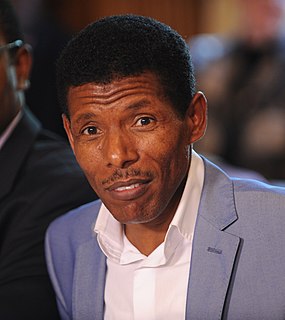A Quote by David Mamet
Do not internalize the industrial model. You are not one of the myriad interchangeable pieces, but a unique human being, and if you've got something to say, say it, and think well of yourself while you're learning to say it better.
Related Quotes
A lot of times, people believe that until you're a certain-list actor, you say yes to everything; you're not allowed to say no. But early on, something went off in me, and if something didn't ring true for a myriad of reasons, I would say no and was fortunate enough to have people around me that were OK with that.
Even before I went to the UN, I often would want to say something in a meeting - only woman at the table - and I'd think, 'OK well, I don't think I'll say that. It may sound stupid.' And then some man says it, and everybody thinks it's completely brilliant, and you are so mad at yourself for not saying something.
You have to learn to say no not just to things you don't want to do, you have to say no to things that you want to do, things that are good to do. You have to realize that every time you say yes to one thing you've got to take something else off the plate. Critically, I think you have to realize that it's easier to say no than to say maybe.
If you say something that is a little unsafe to say but you feel strongly and passionate about it, a lot of people can attack you and call you a bad role model just because they don't agree with your views, but in reality we're all different and we're all unique in our own way and we all have different thoughts.
You have to say, whatever it is that I say or do or think or teach must be something that will be consistent with who Jesus Christ was. So that is your ultimate litmus test, not that you've got specific words to say, whatever they may be saying. It is what is being said. They're consistent with the revelation of God that we encounter in Jesus.
As a storyteller, you have to have something to say. You have to look at the world, think about it in relationship to yourself, and say, 'I think this is a pattern,' or 'I think this is the way fatherhood works,' or 'I think this is the way first love feels.' The danger in that is, that's when you open yourself up to real critique.
Another way to put an end to self-rejection is ask yourself whether what you're telling yourself is what a friend would say, or what an enemy would. Friends are supportive. Enemies put us down and undermine our confidence. So if you say something that an enemy would say, stop. Answer back, 'I'm going to be supportive of myself. As a friend, what I have to say to myself is . . .' Then say something supportive.





































